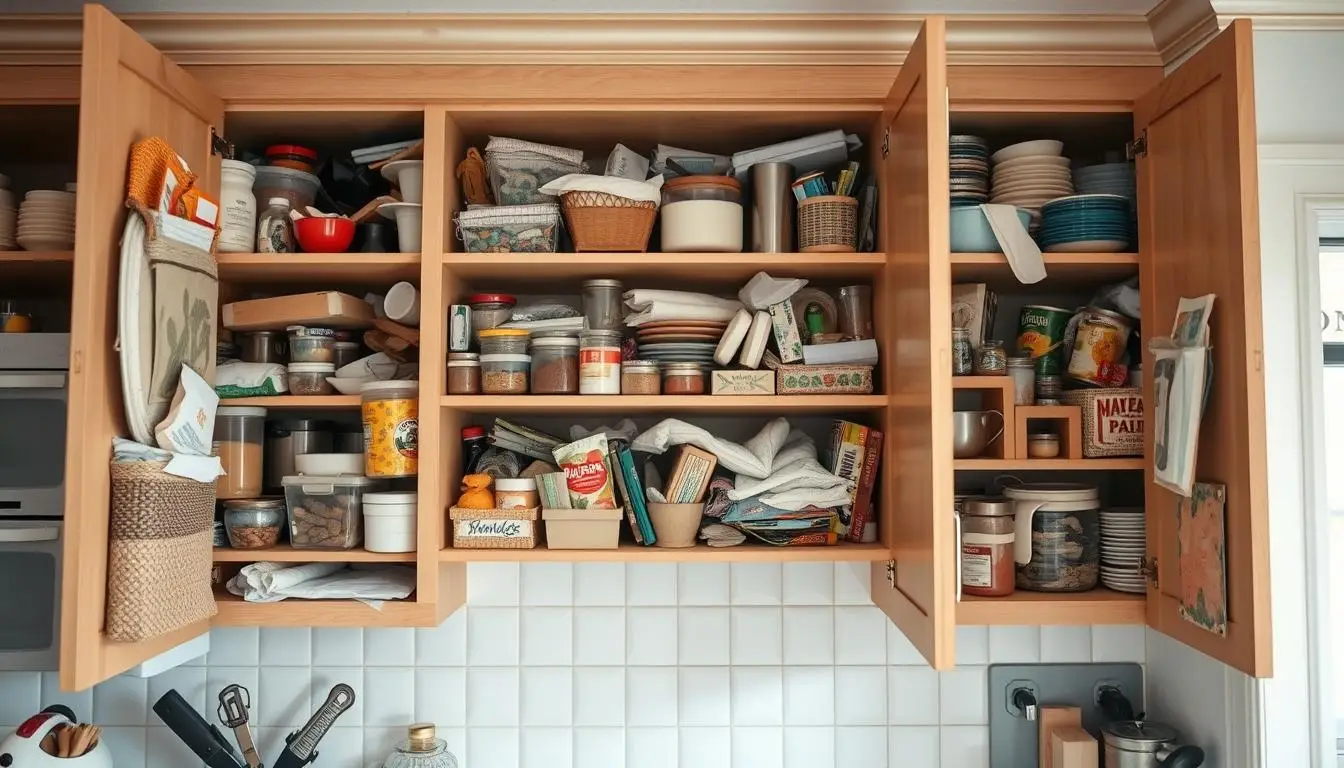Did you know that 80% of homeowners are unhappy with their kitchen storage solutions? A well-organized space can transform your cooking experience, yet many of us unknowingly make common errors that lead to clutter and chaos. Even the most meticulous planners can fall into these traps, leaving countertops overcrowded and cabinets underutilized.
Experts like Nicki Rodriguez and Danielle Taylor emphasize the importance of maximizing every inch of your kitchen. From unused vertical spaces to mismatched containers, small oversights can create big problems. This article highlights seven frequent storage mistakes and provides practical, easy-to-implement fixes to help you reclaim your space.
Whether you’re dealing with overstuffed cabinets or expired spices, we’ll guide you through simple steps to create a more functional and stress-free kitchen. Let’s dive in and transform your cluttered space into an organized haven!
Key Takeaways
- 80% of homeowners struggle with inefficient kitchen storage.
- Vertical space can increase cabinet capacity by up to 50%.
- Clear storage bins improve visibility and save time.
- Overstuffed cabinets often lead to damage and maintenance issues.
- Proper organization reduces clutter and enhances functionality.
Overcrowded Countertops: Clearing the Clutter
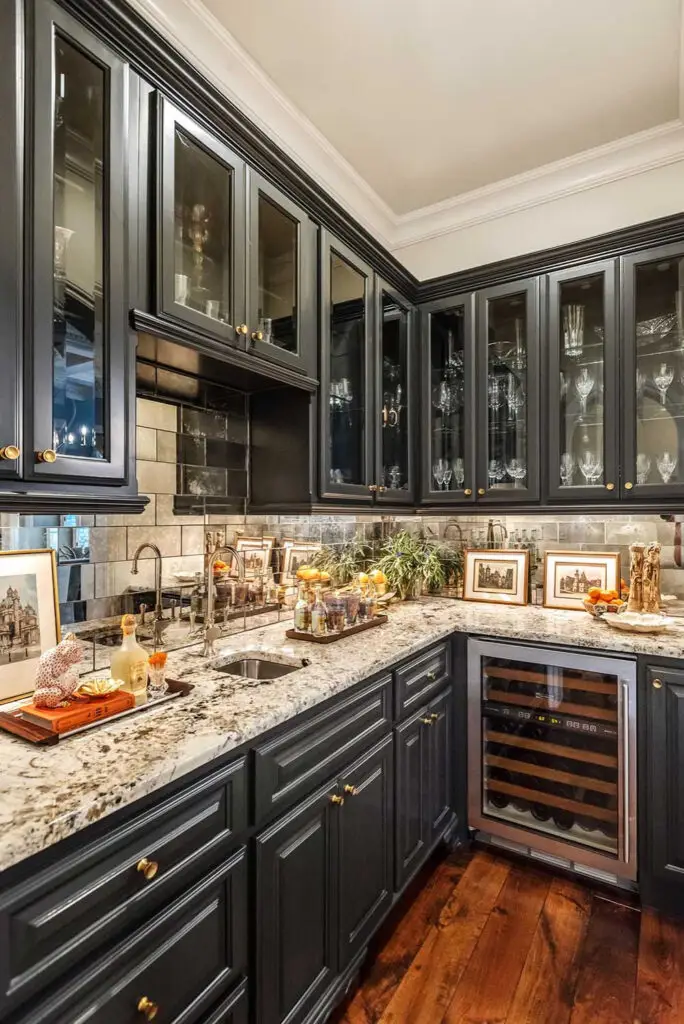
Cluttered countertops can turn meal prep into a stressful ordeal. When every inch of your work surface is covered, finding the tools you need becomes a challenge. This not only slows you down but also increases the risk of cross-contamination and bacteria buildup. According to experts like Nicki Rodriguez, a clean worktop is essential for both safety and efficiency.
The Impact on Meal Preparation
Overcrowded countertops create a bottleneck in your cooking process. Imagine trying to chop vegetables while juggling appliances, utensils, and ingredients. This chaos can lead to frustration and even accidents. Research shows that a cluttered space can increase stress levels by 20%, making it harder to enjoy the process of preparing food.
Additionally, clutter can harbor bacteria, especially in areas where food is prepared. Keeping your work surface clear ensures a hygienic environment, reducing the risk of contamination. As Rodriguez points out, “A clean countertop is the foundation of a safe and functional kitchen.”
Easy Fixes for a Cleaner Worktop
Here are some practical steps to reclaim your countertop space:
- Store appliances properly: Keep blenders, toasters, and other gadgets in designated drawers or cabinets when not in use.
- Invest in vertical storage: Use shelves or racks to free up essential worktop space.
- Declutter regularly: Remove items that don’t belong on the countertop, such as mail or decorative pieces.
By implementing these changes, you’ll not only improve food safety but also create a more organized and inviting atmosphere. For more tips on optimizing your space, check out our guide on choosing the right cabinet style.
Utilizing Vertical Space for Enhanced Storage
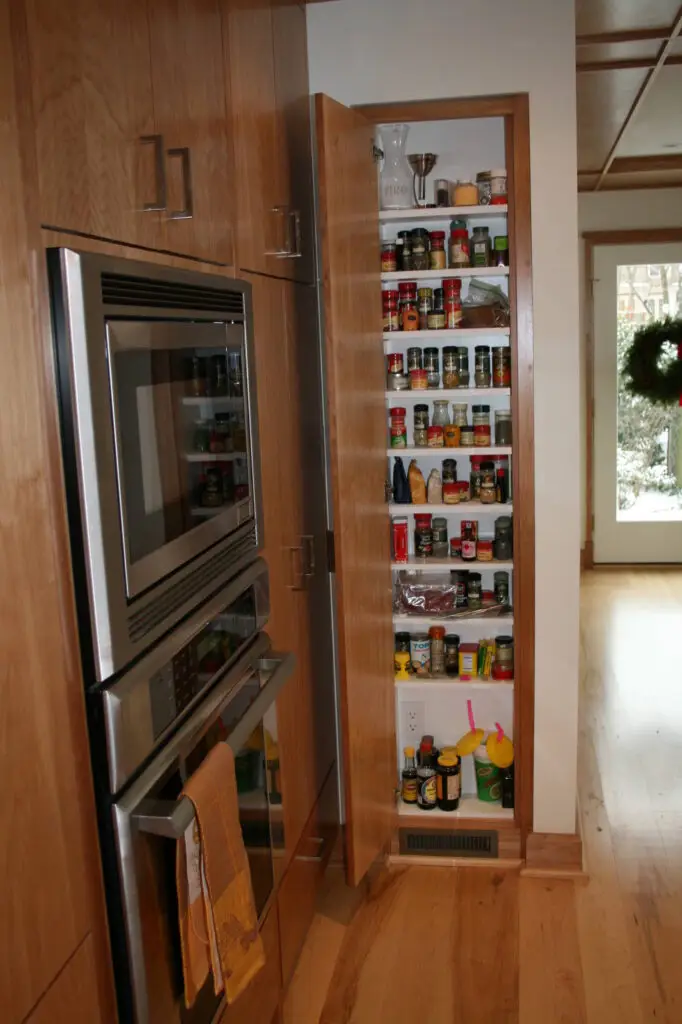
Vertical space is often overlooked but holds immense potential for transforming your home. By thinking upward, you can create more room without cluttering your floors or countertops. This approach not only maximizes functionality but also adds a touch of elegance to your space.
Creative Solutions to Extend Your Storage
One of the best ways to utilize vertical space is through open shelving. It’s a versatile idea that allows you to display cherished decor while organizing essentials. Danielle Taylor from Cosu Studio emphasizes, “Open shelves blend practicality with style, making them a must-have in modern homes.”
Another smart idea is installing cabinets that extend to the ceiling. These upper spaces are perfect for storing seasonal items or rarely used appliances. This keeps them out of the way but still accessible when needed.
Kickboards are another innovative solution. Often ignored, this area can be converted into extra storage for baking trays, cooling racks, or other flat items. It’s a clever way to make use of every inch of your space.
| Solution | Benefits |
|---|---|
| Open Shelving | Combines decor and storage, easy access |
| Ceiling Cabinets | Ideal for seasonal items, maximizes space |
| Kickboards | Converts unused areas into functional storage |
By implementing these ideas, you can create a functional and visually appealing environment. For more tips on maintaining your space, check out our guide on cleaning and organizing effectively.
Improper Food Storage: Wasting Space and Food
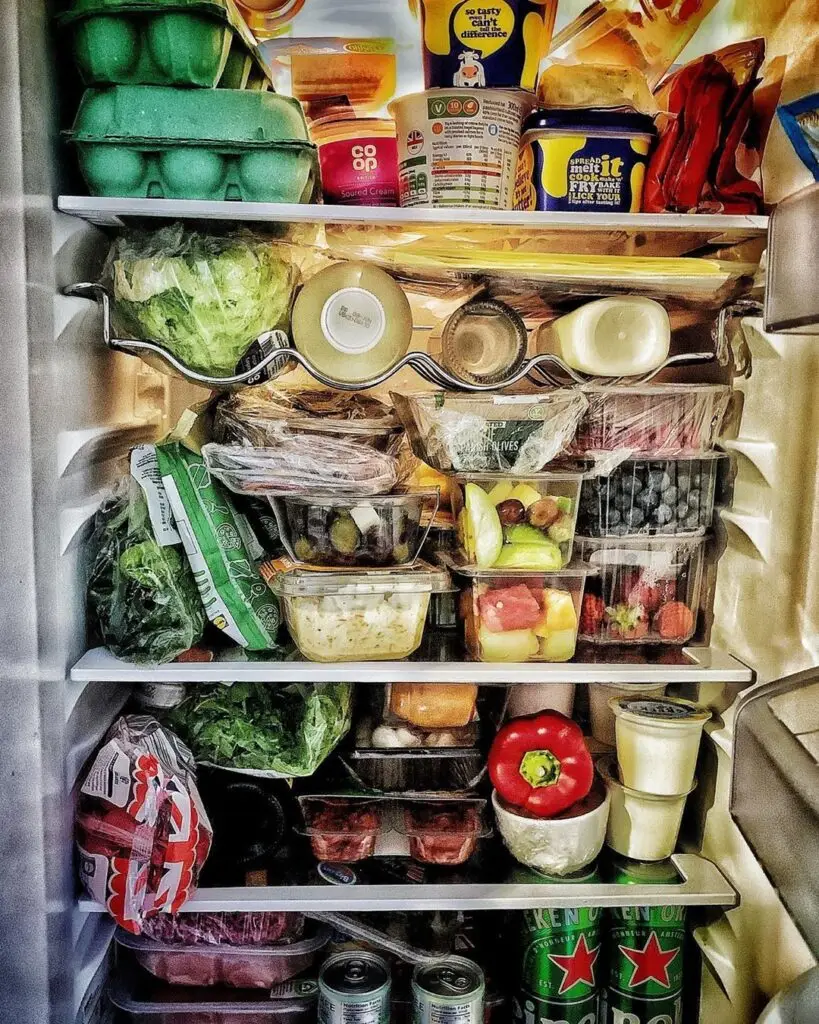
Wasted space and spoiled food are often the result of poor storage habits. When ingredients are stashed haphazardly, they’re easily forgotten, leading to unnecessary waste. This not only costs you money but also reduces the efficiency of your pantry.
Investing in Organized Containers
One of the simplest solutions to this problem is using clear plastic or glass containers. These allow you to see what’s inside at a glance, eliminating the guesswork. Experts recommend this approach to create a visual inventory of your supplies.
Organized containers also save space by stacking neatly. This keeps your pantry tidy and ensures every inch is utilized effectively. As Danielle Taylor notes, “A well-organized pantry is the foundation of efficient cooking.”
Implementing a First-In, First-Out System
The FIFO method ensures older products are used before newer ones. This reduces food waste and keeps your ingredients fresh. Here’s how to implement it:
- Label everything: Mark containers with purchase or expiration dates.
- Rotate stock: Place newer items behind older ones.
- Regularly check supplies: Use older items first in your baking or cooking.
By adopting these practices, you’ll not only save time but also reduce waste. For more tips on optimizing your space, explore our guide on affordable kitchen cabinets.
| Storage Solution | Benefits |
|---|---|
| Clear Containers | Improves visibility, saves space |
| FIFO System | Reduces waste, ensures freshness |
| Labeling | Simplifies organization, saves time |
Maximizing Cabinet Doors: Hidden Storage Opportunities
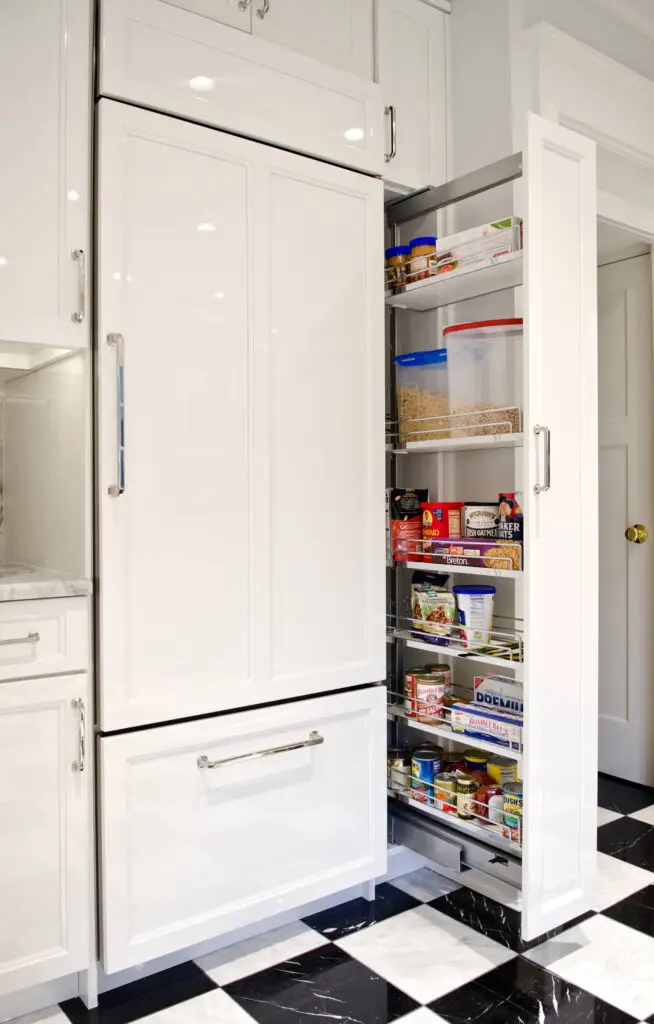
Your cabinet doors are more than just panels—they’re untapped storage potential. Often overlooked, these surfaces can transform cluttered spaces into organized zones. By using simple solutions like hooks and racks, you can free up valuable room and keep essentials within reach.
Installing Hooks and Racks for Efficiency
One of the easiest ways to maximize your cabinet doors is by adding hooks or small wire racks. These tools create dedicated spots for frequently used items like measuring cups, spices, or cleaning supplies. As Danielle Taylor notes, “Hooks and racks turn unused space into functional storage.”
Here’s how to get started:
- Choose the right hooks: Opt for adhesive or screw-in hooks based on your needs.
- Install wire racks: These are perfect for holding small jars or utensils.
- Organize by category: Group similar items together for quick access.
Keeping Items Easily Accessible
Efficient use of cabinet doors ensures everyday items are always within reach. This not only saves time but also reduces clutter on your countertop. For example, storing spices on the inside of a door keeps them visible and accessible while cooking.
Safety is another benefit. By separating clutter from essential tools, you create a more organized and hazard-free environment. This approach is especially useful in high-traffic areas like the kitchen.
For more innovative ideas, check out our guide on maximizing storage efficiency. With these tips, you’ll transform your cabinet doors into practical storage zones in no time!
Kitchen Cabinet Storage Mistakes: A Closer Look
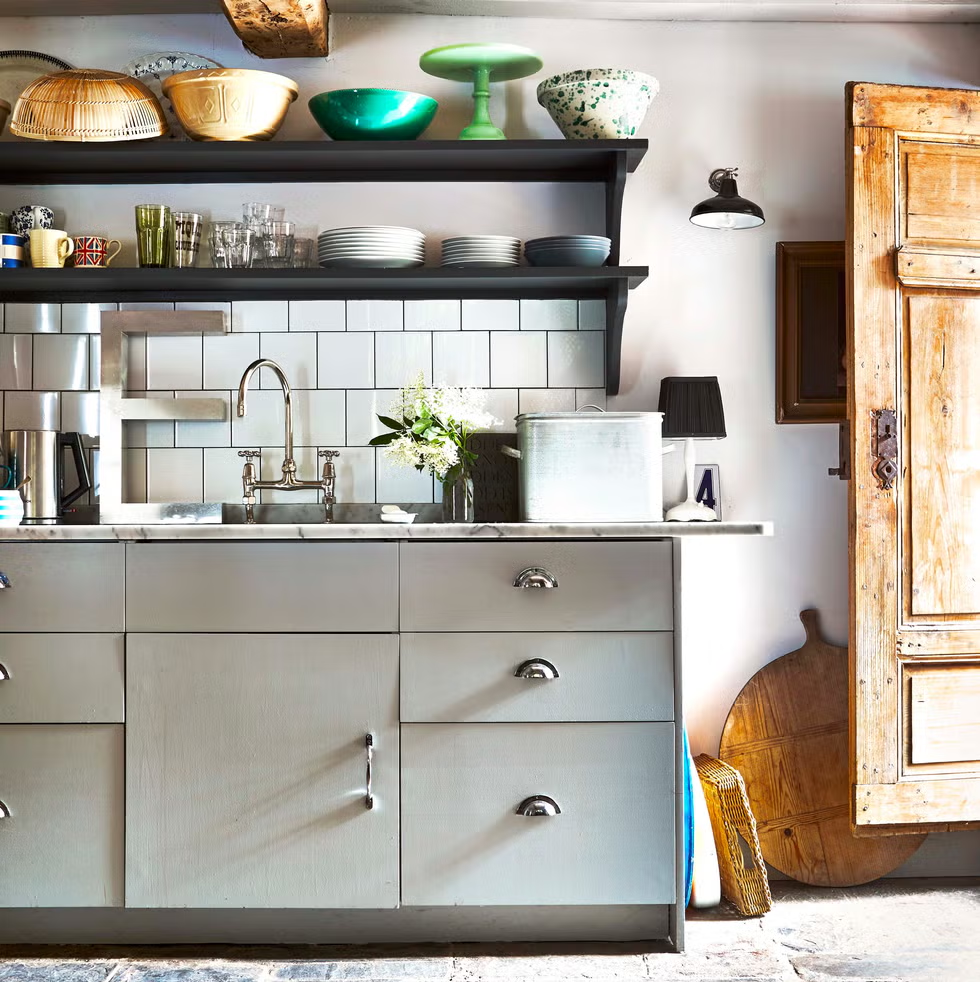
Many homeowners unknowingly fall into common organizational traps that hinder efficiency. While we often focus on surface-level tidying, deeper oversights can lead to long-term inefficiencies. Experts highlight that these habits, though small, can significantly impact the functionality of your space.
Common Oversights in Kitchen Organization
One frequent mistake is neglecting vertical space. Shelves and racks can transform unused areas into functional zones. As Danielle Taylor notes, “Vertical solutions are a game-changer for maximizing capacity.” Yet, many fail to utilize this potential, leaving valuable space untouched.
Another oversight is improper cleaning routines. Dust and grime can accumulate in hard-to-reach corners, affecting both hygiene and longevity. Regular reviews, even once a year, can prevent these issues from escalating.
- Decorative vs. Functional Placement: Items placed for aesthetics often clutter essential work areas. Striking a balance is key.
- Underutilized Spaces: Areas like cabinet doors or kickboards are often ignored but hold great potential.
- Regular Reviews: Periodic assessments ensure your system remains efficient and adaptable.
By recognizing these storage mistakes, you can take proactive steps toward a more organized and efficient home. For more insights on optimizing your space, explore our guide on modern kitchen cabinets.
Drawer Dilemmas: Knives, Batteries, and Beyond
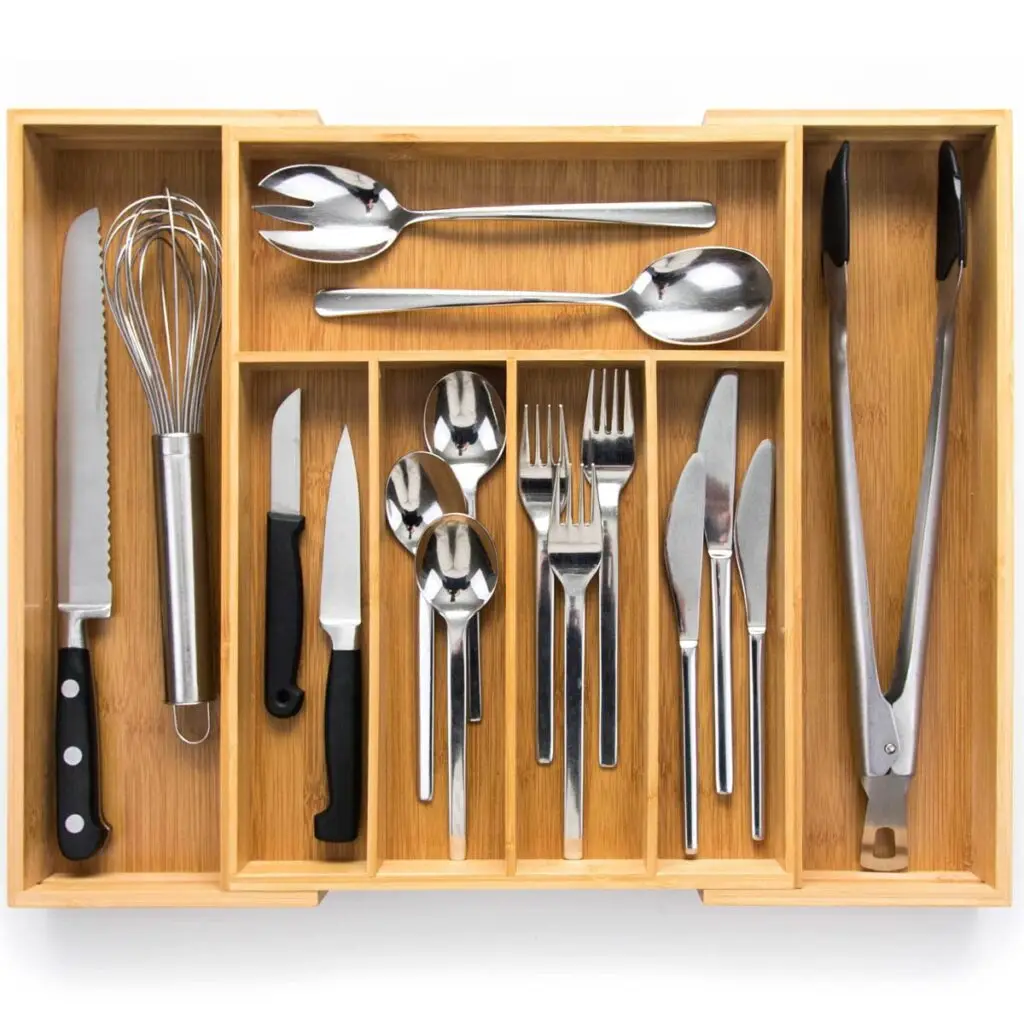
Kitchen drawers often become a chaotic mix of sharp tools and everyday items, posing hidden risks. From knives to loose batteries, these mistakes can lead to accidents or damage. By addressing these issues, you can create a safer and more efficient space.
Safe Knife Storage Alternatives
Storing sharp knives in a drawer with other utensils is a common but dangerous practice. The blades can dull or cause injuries when mixed with other items. Instead, consider these safer options:
- Magnetic knife strips: Mount these on the wall to keep knives accessible yet secure.
- Dedicated knife blocks: These protect blades and keep them organized.
- In-drawer knife trays: Use dividers to separate knives from other tools.
These solutions not only enhance safety but also extend the lifespan of your knives.
Proper Battery Organization Solutions
Loose batteries in a drawer can leak or corrode, damaging other items. Specialized organizers, like the Ontel Battery Daddy Ultra, can hold up to 180 batteries of various types. Here’s how to keep them in check:
- Use labeled cases: Separate batteries by type and size for easy access.
- Store in a cool, dry place: Prevent leakage by avoiding humid areas.
- Check expiration dates: Replace old batteries to avoid potential hazards.
Proper organization ensures your batteries remain functional and safe.
| Solution | Benefits |
|---|---|
| Magnetic Knife Strips | Keeps knives secure and accessible |
| Battery Organizers | Prevents leakage and corrosion |
| In-Drawer Trays | Protects knives and tools |
By reorganizing your drawer, you can eliminate risks and streamline your daily tasks. For more tips on optimizing your space, explore our guide on modern solutions.
Designing Dedicated Zones for a Streamlined Kitchen
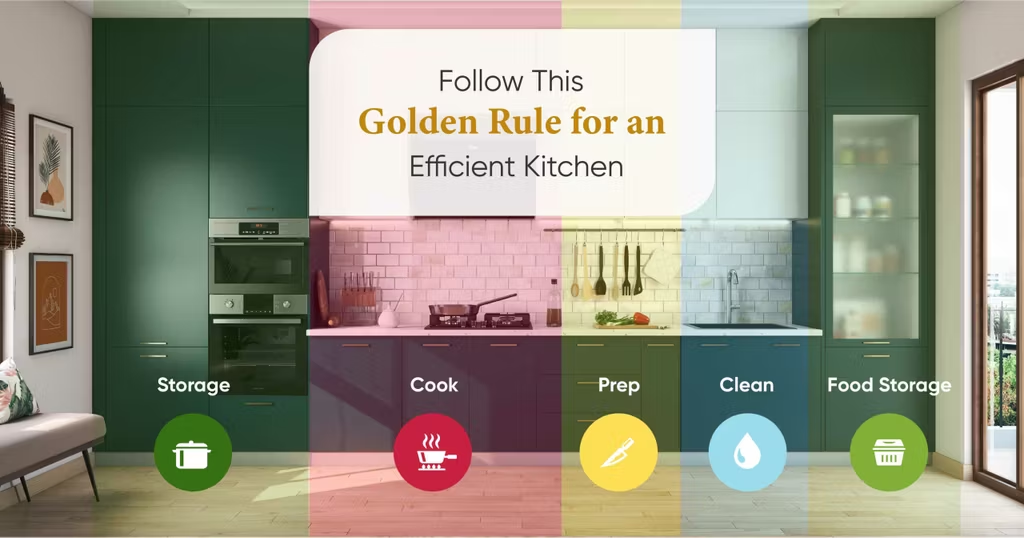
Transforming your cooking experience starts with smart organization. By creating dedicated zones, you can optimize your workflow and make every task feel effortless. Experts agree that separating areas for food prep, cooking, and baking dramatically improves efficiency and ease of use for appliances and essentials.
Arranging Appliances and Cooking Essentials Thoughtfully
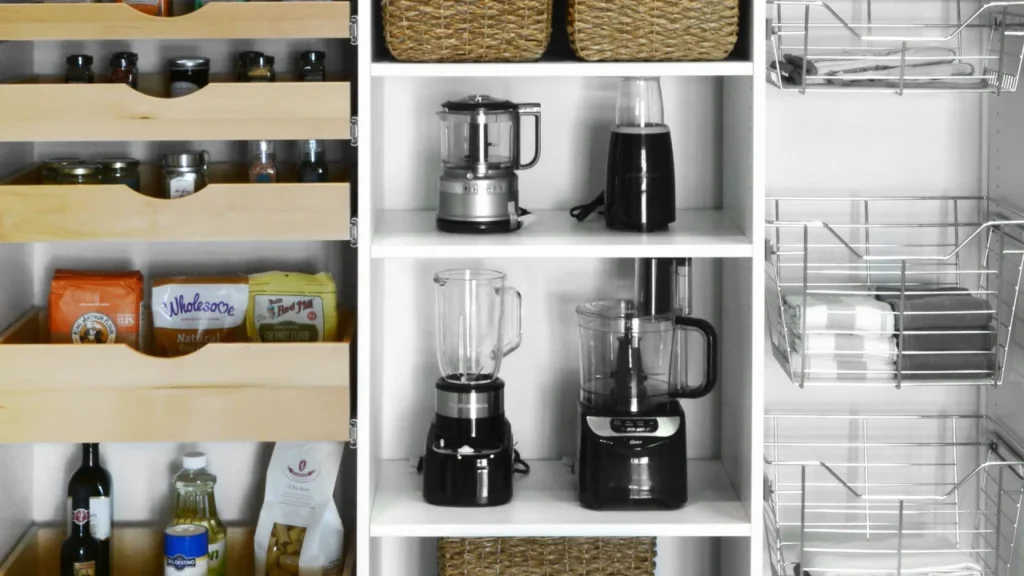
One of the best ways to streamline your space is by grouping frequently used appliances together. For example, place your blender and mixer near the prep area for easy access. Situate cooking tools like spatulas and tongs close to the stove to minimize movement during meal prep.
Open shelving can reinforce each designated zone. Use shelves to display frequently used items, keeping them within arm’s reach. As one expert notes, “Open shelving not only adds style but also enhances functionality.”
Cabinet doors also offer hidden opportunities. Install hooks or racks to hold measuring cups or spices. This keeps essentials organized and frees up counter space. By creating clear boundaries between storage areas, you prevent cross-contamination and clutter.
Here’s a step-by-step guide to redesigning your space:
- Identify tasks: List the main activities you perform in the space, such as prepping, cooking, and baking.
- Group essentials: Gather tools and appliances needed for each task.
- Assign zones: Designate specific areas for each activity, ensuring everything is within reach.
- Use vertical space: Install shelves or racks to maximize storage without cluttering countertops.
- Label and organize: Use clear containers and labels to keep items visible and accessible.
For more creative solutions, explore our guide on kitchen island ideas. With these tips, you’ll create a functional and inviting environment that makes every task a breeze!
Conclusion
Small changes can lead to big improvements in your home. From clearing countertops to organizing drawers, each step brings you closer to a more efficient and enjoyable space. We’ve highlighted seven common issues and provided practical fixes to help you reclaim your place.
Reviewing every area—whether it’s the sink, cooking zone, or drawers—ensures nothing is overlooked. Even minor adjustments, like storing your air fryer properly or keeping pots away from heat, can make a significant difference. These solutions might seem simple, but they work wonders in streamlining your daily tasks.
Take action today! Implement these expert tips to create a functional and stress-free environment. For more ideas and ongoing support, explore our guides to keep your home organized and efficient. Together, we can make every corner of your space a thing of beauty and practicality.
FAQ
How can I clear clutter from my countertops effectively?
Start by removing items you don’t use daily. Use organizers or trays to group essentials, and consider storing rarely used appliances in cabinets or pantries to free up space.
What are some creative ways to use vertical space for storage?
Install shelves or racks above your work areas. Use wall-mounted hooks for utensils or pots, and consider adding a pegboard for frequently used tools to maximize vertical storage.
How can I prevent food waste with better storage?
Use clear, airtight containers to keep ingredients fresh. Implement a first-in, first-out system to ensure older items are used first, and label containers with expiration dates for easy tracking.
How can I make the most of cabinet doors for storage?
Add hooks, racks, or small shelves to the inside of doors. This is perfect for storing lightweight items like measuring cups, spices, or cleaning supplies, keeping them easily accessible.
What’s the best way to organize kitchen drawers?
Use drawer dividers to separate utensils, knives, and other tools. Store batteries or small items in labeled containers to keep everything neat and easy to find.
How can I create dedicated zones in my kitchen?
Group appliances and tools by function. For example, keep baking supplies together near the oven, and store cooking utensils close to the stove for a more efficient workflow.
Source Links
- 12 Things to Toss From Your Kitchen ASAP – https://www.yahoo.com/lifestyle/12-things-toss-kitchen-asap-180100370.html
- How to Revive a Dying Orchid So It Flourishes for Decades, According to Horticulturists – https://www.yahoo.com/lifestyle/revive-dying-orchid-flourishes-decades-180100930.html
- How to Keep Your Orchid Alive for Years – https://www.yahoo.com/lifestyle/keep-orchid-alive-years-192100302.html
- » How to Achieve a Minimalist Kitchen Organization for a Clutter-Free Home – https://bakecreatelove.com/how-to-achieve-a-minimalist-kitchen-organization-for-a-clutter-free-home/
- How To Declutter And Organize Your Home In 1 Month – https://www.southernliving.com/organize-and-declutter-home-11681305
- The Best Actually-Comfortable Pet Carriers For Travel – https://www.huffpost.com/entry/travel-pet-carriers-ud_l_67bf85ebe4b00e46454b522b
- How To Clean Linoleum Floors – https://www.yahoo.com/lifestyle/clean-linoleum-floors-031920499.html
- Shoppers struggle with rising grocery bills while a bigger crisis looms — here’s what’s going on – https://www.yahoo.com/news/shoppers-struggle-rising-grocery-bills-103051146.html
- We Found the Affordable Secret to a Cleaner Home, Fast – https://www.goodhousekeeping.com/home-products/g63906412/best-microfiber-cleaning-cloths/
- 7 Things Making Your Bathroom Look Cluttered – https://www.southernliving.com/things-making-bathroom-look-cluttered-11684289
- Replace Your Lazy Susan With These 8 Alternatives That Are Far More Functional – House Digest – https://www.housedigest.com/1801044/lazy-susan-alternatives-kitchen-storage-functional/
- 10 Tips To Significantly Cut Costs When Building Your Own Cabinets – House Digest – https://www.housedigest.com/1798431/cabinet-savings-diy-tips-reduce-expenses-budget/
- Entryway Storage Without a Closet: 3 Smart Ideas – https://thediyplaybook.com/entryway-storage-without-a-closet/
- 13 Things You Should Never Store On Top Of Your Fridge – https://www.southernliving.com/what-not-to-store-on-top-of-fridge-11683192
- ‘It’s all about little habits’ – 3 easy things people with clean living rooms always do for a relaxed sanctuary worthy of spending time in – https://www.homesandgardens.com/solved/things-people-with-clean-living-rooms-always-do
- The Places Where You Should Never Put Your Microwave in The Kitchen (And Where to Put it Instead) – https://www.cookist.com/the-places-where-you-should-never-put-your-microwave-in-the-kitchen-and-where-to-put-it-instead/
- 6 expert-picked home hacks that will make your life easier, from $8 – https://www.today.com/shop/home-hacks-problem-solvers-rcna188539
- A Guide For Building a Home Emergency Kit For Your Family – https://thediyplaybook.com/home-emergency-kit/
- 10 Genius Ways to Get Storage Into Your Kitchen Island That Look Great and Are Gamechangers for Organization – https://www.livingetc.com/ideas/kitchen-island-storage-ideas
- Best in Class – https://nymag.com/strategist/article/best-kitchen-knife-sets.html
- 8 Smart Thrift Store Finds That Will Help You Stay Organized – https://www.yahoo.com/lifestyle/8-smart-thrift-store-finds-150100672.html
- Storing These 24 Common Things In Your Garage Is A Big Mistake – House Digest – https://www.housedigest.com/1800418/garage-storage-mistake-things-items-avoid-storing/

